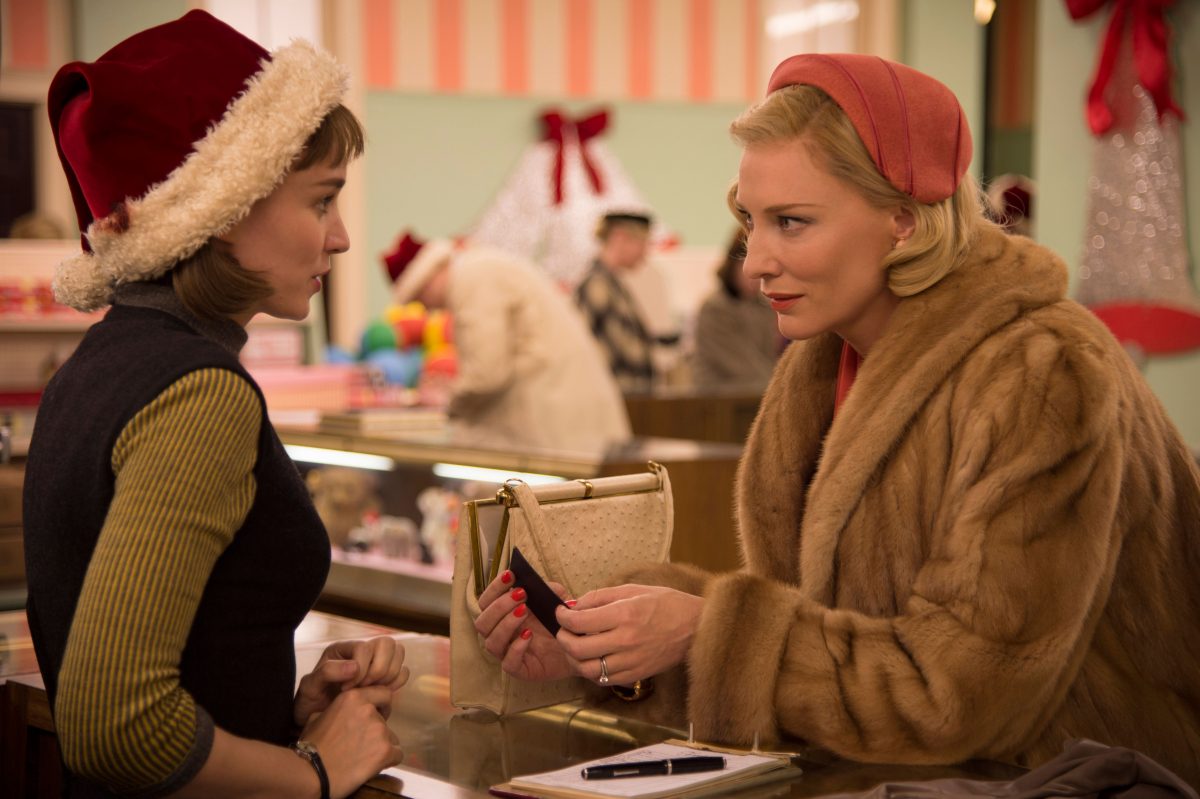With sapphic romantic drama Carol, Todd Haynes confirms himself as a master of forbidden love.
In 2002’s Far From Heaven, stylized as a Sirkian ‘50s melodrama, he doubled down on issues of race and sexuality. Here, however, it all comes down to a single relationship between black-bobbed shop-girl Therese (Rooney Mara) and reluctant socialite Carol (Cate Blanchett), whose eyes meet across a crowded store one busy December morning.
A train set is ordered; gloves returned; a lunch invitation extended. Before too long Therese is having dinner at the Aird family manse upstate, a move to which Carol’s overbearing sap of a husband, Harge (Kyle Chandler), does not approve — Therese, it seems, has a precedent.
Therese’s life at the store, with her disapproving floor manager and All-American would-be fiancé Richard (Jake Lacey), is hollow but functional; like the model city whose toy train seems to be the analogue of the one whose clack and screech opens the film. While Richard wants to take “Terry” east to Europe, she instead heads west with Carol in her muted silver Packard, away from the steamy streets of Manhattan; looking for privacy, perhaps.
Their relationship is one of unspoken, intimate connection. By the time the dressing gown is allowed to slip, the erotic longing has become almost unbearable. Based on Patricia Highsmith’s The Price of Salt, adapted by Phyllis Nagy, Haynes’ film is defined by longing.
It’s longing that aspiring film critic Danny (John Magaro) feels when he kisses Therese at the NYT offices — a kiss that she first returns then gently rebuffs. It’s longing that motivates Harge to bang on “Aunt” Abby’s (Sarah Paulson’s) door, demanding his wife home for the holidays. “I love her”, he tells the sultry sweater girl; “I can’t help you with that”, she tersely responds. Carol understands that longing, and all it entails, is written in the body; in the application of perfume to pulse points, in soft focus, the lightest touch — a delicate, desperate beauty.
Blanchett’s embodiment of Carol is nothing short of astonishing: warm yet elegant, poised and vulnerable all at once, it’s made all the more captivating by Mara’s equally impressive counter turn as the darker, self-possessing Therese.
Haynes’ film is beautiful, powerful and subtle, full of sweetness and light, desire and heartbreak — but never cruelty or ugliness. “We are not ugly people”, a fraught Carol pleads of Harge when he seeks to deny her access to their daughter, Rindy; to air their dirty laundry in court. Edward Lachman’s delicate, almost powdered Super 16 cinematography evokes a glamour magazine, which is buoyed by Carter Burwell’s moving, Phillip Glass-inflected score.
As warm and luxuriant as Blanchett’s fur coat, and just as palpable, Carol is a captivating gift — and all in time for Christmas, too.
